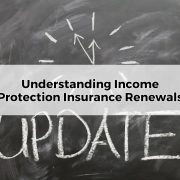Key Differences Between Life Insurance Inside and Outside Super
Table of Contents
ToggleLife insurance is an essential part of financial planning, providing financial security for your loved ones in the event of your death or disability. In Australia, life insurance can be held either inside or outside superannuation, with each option offering distinct advantages and limitations. Understanding these differences is crucial for making an informed decision that aligns with your financial goals and circumstances. While holding life insurance through your super fund may seem convenient and cost-effective, it’s not always the most suitable option for everyone. Similarly, having a policy outside super may provide more comprehensive coverage, but it often comes with higher costs and less convenience. This guide explores the key differences between life insurance inside and outside super to help you decide which option is best for you.
Overview of Life Insurance Inside Super
When life insurance is held inside your superannuation, the premiums are deducted directly from your super balance rather than your take-home income. Super funds typically offer default life insurance coverage, which often includes death cover, total and permanent disability (TPD) cover, and sometimes income protection. This setup is convenient for many Australians, as it simplifies the process of obtaining coverage without requiring a separate application. Additionally, premiums are paid using pre-tax contributions or accumulated super funds, which can make this option more affordable in the short term.
However, life insurance inside super is subject to restrictions and limitations, particularly when it comes to claim eligibility and benefit payments. For example, payouts from insurance policies held in super must meet the conditions of release outlined in superannuation law. This means that even if a claim is approved by the insurer, the funds may only be accessible if they align with the conditions for accessing super, such as reaching retirement age or meeting specific hardship criteria. These restrictions can complicate the process of accessing benefits when they are most needed.
Overview of Life Insurance Outside Super
Life insurance held outside super refers to policies purchased directly from an insurance provider, independent of your superannuation fund. These policies are typically tailored to your individual needs and provide more flexibility in terms of coverage options, policy terms, and beneficiaries. For instance, you can customise your policy to include a broader range of benefits, such as critical illness cover or specialised income protection tailored to your occupation. This level of personalisation ensures that your insurance policy aligns closely with your lifestyle, financial obligations, and family’s needs.
While life insurance outside super offers greater flexibility and comprehensive coverage, it is often more expensive than policies held within super. Premiums are paid from your post-tax income, which can reduce your disposable income and add to your ongoing expenses. Additionally, obtaining insurance outside super generally requires a detailed underwriting process, including health checks and financial disclosures, which may make it harder for individuals with pre-existing conditions to secure coverage. Despite these challenges, the advantages of tailored coverage and direct access to payouts often make this option worthwhile for those with complex financial needs.
Premium Payment Differences
One of the most noticeable differences between life insurance inside and outside super is how premiums are paid. When insurance is held within super, premiums are deducted directly from your superannuation balance. This can make it more affordable in the short term, as it does not directly impact your cash flow or disposable income. However, this also reduces your superannuation savings, potentially affecting your long-term retirement outcomes. If premiums are high, or you have multiple insurance policies through super, the cumulative impact on your super balance can be significant over time.
In contrast, premiums for insurance outside super are paid from your post-tax income. While this requires a higher out-of-pocket cost, it has no impact on your retirement savings. Moreover, depending on your income and financial situation, you may be eligible for tax deductions on certain premiums, such as income protection policies, which can help offset some of the cost. It’s important to weigh the immediate affordability of premiums against their long-term impact on your financial position to determine the best option for your circumstances.
Tax Implications
Tax treatment is another key distinction between life insurance inside and outside super. When premiums are paid through super, they are generally funded using pre-tax contributions, which can offer tax advantages. For example, employer contributions and salary sacrifice arrangements are taxed at a concessional rate of 15%, making it a tax-effective way to fund insurance premiums. However, payouts from life insurance policies within super may be subject to tax if they are made to non-dependent beneficiaries, such as adult children. This can significantly reduce the net benefit received by your beneficiaries.
In contrast, life insurance payouts from policies held outside super are typically tax-free, regardless of who the beneficiary is. This makes policies outside super more advantageous for individuals planning to provide for non-dependent beneficiaries. Additionally, because the premiums are paid with post-tax income, there is no impact on concessional contribution caps, giving you more flexibility in managing your overall tax strategy.
Coverage and Policy Features
Life insurance policies held inside super often provide default coverage that is sufficient for basic needs but may lack the flexibility and comprehensiveness of policies held outside super. For instance, default super policies may not cover certain conditions or offer limited benefits, such as a capped income protection payout or restrictive definitions for TPD. These limitations can leave policyholders underinsured or struggling to claim benefits when needed. Additionally, insurance through super is typically designed to suit a broad membership base, meaning it may not address the specific needs of individuals with unique financial obligations or high-risk occupations.
Conversely, policies held outside super can be tailored to provide broader and more specialised coverage. You have greater control over policy terms, including benefit amounts, payout structures, and additional coverage options like trauma insurance. Furthermore, insurance outside super is not restricted by superannuation law, meaning that payouts are more likely to be directly accessible by your beneficiaries without additional conditions or delays. For individuals seeking comprehensive coverage and fewer restrictions, insurance outside super is often the preferred choice.
Accessibility of Payouts
Accessing payouts from life insurance held within super can be more complex due to the conditions of release imposed by superannuation law. Even if the insurer approves a claim, the funds may only be released if the claimant meets specific eligibility criteria, such as being permanently incapacitated or reaching preservation age. This can create delays or prevent access to benefits at a critical time. For beneficiaries, this adds an extra layer of complexity and may result in financial hardship if immediate access to funds is required.
In contrast, life insurance payouts from policies held outside super are not subject to the same restrictions. Once a claim is approved, the insurer pays the benefits directly to the nominated beneficiaries or policyholder. This simplicity ensures that funds are available when needed, providing greater financial security for your loved ones. The ability to bypass superannuation conditions of release is a significant advantage for those seeking direct and immediate access to benefits.
Conclusion
Choosing between life insurance inside and outside super is a decision that requires careful consideration of your financial goals, lifestyle, and long-term planning needs. While insurance inside super offers affordability and convenience, it comes with limitations such as restrictive claim conditions and reduced flexibility. On the other hand, life insurance outside super provides comprehensive coverage and greater control but is typically more expensive and less convenient to set up. Understanding these differences, including their impact on premiums, tax implications, and payout accessibility, is crucial for making an informed choice. Consulting with a financial adviser, such as a Toowoomba financial adviser, can help you navigate these options and create a strategy that aligns with your financial security and retirement goals. By tailoring your insurance coverage to your specific needs, you can ensure peace of mind and financial protection for your loved ones.









